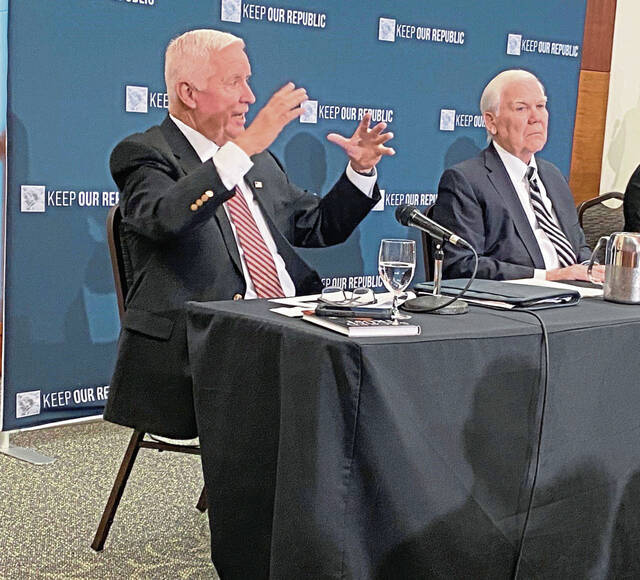Editorial: Trust the math with election integrity
Math is universal.
One and one is two, two and two makes four, four and four becomes eight and on and on and on. It doesn’t matter where it happens. It doesn’t matter if you are counting pencils or puppies or people. The math is the math.
That is what makes elections work.
Elections are all about the numbers. There is the percentage of people that vote. There are the fractions for this candidate and that one. There are the statistics and the probabilities and — at the end of it all — the final tallies that translate into who wins the race.
If you work with numbers in a bank, the calculations are trusted. In construction, with measuring twice and cutting once, the numbers are trusted. But in recent years, the math of elections has been cast in shadows.
A bipartisan group of Pennsylvanians this week said that’s wrong.
“There is no such thing as a perfect election,” said former Republican governor Tom Corbett Tuesday at an election integrity panel at Saint Vincent College in Unity.
It’s true. Elections are, barring a special race, something that only happens twice a year. They require pop-up facilities in churches and fire halls and other community locations. They require temporary personnel. The voters can be confused about what the process is, as each election has its own quirks and specifics.
It is amazing that any election works out with minimal hiccups. Increased focus on “election integrity” seems to have less to do with actual problems than with fears. What if someone cheated? What if this ballot shouldn’t have been counted?
Partisan rhetoric surrounding the 2016 and 2020 presidential campaigns is a part of that, but it’s not all of it. There were also the court challenges to the 2020 state senate race between incumbent Jim Brewster and now-Westmoreland County District Attorney Nicole Ziccarelli. There were the primary battles between Dr. Mehmet Oz and David McCormick in the 2022 U.S. Senate race.
But that doesn’t have to be the norm. Corbett’s race is an example. In 2014, he became the only Republican governor in state history to lose reelection — the first incumbent to lose after governors were allowed to seek a second term. But he accepted the math and graciously conceded a hard-fought race.
Pennsylvania will be in the spotlight on Election Day, and no doubt for days afterward, as counting is done and challenges are made. They almost certainly will end up in court, which has become the default endgame for too many election races.
“It’s an indication of the political failure of democracy, ” said retired U.S. District Judge Robert Cindrich at the panel discussion.
Elections are supposed to be about addition. Take this vote, add this vote, add another until everyone’s choices are counted.
But discussions of election integrity have become more about a deep-seated distrust surrounding winning and losing. When that happens, the math becomes about division. That should never be universal.
Remove the ads from your TribLIVE reading experience but still support the journalists who create the content with TribLIVE Ad-Free.

